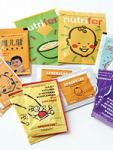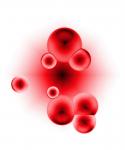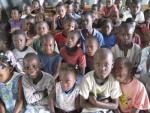Sprinkles in Haiti: Fortifying Food, Protecting Kids
 Malnutrition is a major problem throughout the developing world including Haiti. It saps the immune system, making it easier to get sick with and die from an infectious disease. It slows cognitive development reducing the contributions a person can make to his or her country. After years of business as usual, there have been several very promising developments such as the Ready to Use Therapeutic Food called Plumpynut. There is another important intervention called Sprinkles - a easy to use nutritional supplement that has proven effective in Haiti and elsewhere.
Malnutrition is a major problem throughout the developing world including Haiti. It saps the immune system, making it easier to get sick with and die from an infectious disease. It slows cognitive development reducing the contributions a person can make to his or her country. After years of business as usual, there have been several very promising developments such as the Ready to Use Therapeutic Food called Plumpynut. There is another important intervention called Sprinkles - a easy to use nutritional supplement that has proven effective in Haiti and elsewhere.
 If you want to know whether a nutritional intervention is going to succeed or not, a good first question is whether it will be easy on the mother. Sprinkles definitely meet that criteria. But what are sprinkles? Sprinkles are fortified with iron and zinc, easily added to a child's meal whether it be a bowl of mayi moulin (milled corn) or diri ak sos pwa (rice and bean sauce.) The Sprinkles come in single serving packages. All the mother has to do is open the packet and pour it on the food. Sprinkles do not change the taste of the food nor the color or texture.
If you want to know whether a nutritional intervention is going to succeed or not, a good first question is whether it will be easy on the mother. Sprinkles definitely meet that criteria. But what are sprinkles? Sprinkles are fortified with iron and zinc, easily added to a child's meal whether it be a bowl of mayi moulin (milled corn) or diri ak sos pwa (rice and bean sauce.) The Sprinkles come in single serving packages. All the mother has to do is open the packet and pour it on the food. Sprinkles do not change the taste of the food nor the color or texture.
 According to the World Health Organization (WHO), iron deficiency anemia is the most common micronutrient deficiency in the world. Over 4 billion people may be iron deficient, meaning lower productivity and often premature death for almost 60% of the world's populations.
According to the World Health Organization (WHO), iron deficiency anemia is the most common micronutrient deficiency in the world. Over 4 billion people may be iron deficient, meaning lower productivity and often premature death for almost 60% of the world's populations.
 Sprinkles were first used in Haitian feeding programs in 2004. The results were promising and Population Services International conducted a study to design a Sprinkles packet, name it, and to develop promotional materials. I had read that the government was thinking of incorporating it into its national anemia control strategy but there has since been a change of Administration, so I am not sure where it stands now. If you've seen these packets, let me know.
Sprinkles were first used in Haitian feeding programs in 2004. The results were promising and Population Services International conducted a study to design a Sprinkles packet, name it, and to develop promotional materials. I had read that the government was thinking of incorporating it into its national anemia control strategy but there has since been a change of Administration, so I am not sure where it stands now. If you've seen these packets, let me know.
 According to the attached study, over half of Haitian youth under the age of 2 are anemic. The short version is that sprinkles reduced anemia by half - meaning children were healthier and more energetic. The results are similar to other studies that have been carried out in Ghana, Cambodia, and Bangladesh.
According to the attached study, over half of Haitian youth under the age of 2 are anemic. The short version is that sprinkles reduced anemia by half - meaning children were healthier and more energetic. The results are similar to other studies that have been carried out in Ghana, Cambodia, and Bangladesh.
 In a perfect world, Haiti would have a thriving agricultural sector and families would have livelihoods that would allow them to purchase the fruits and vegetables that would keep their children nourished and healthy. Someday we will get there. In the meantime, interventions such as Sprinkles will help ensure that kids are better nourished and healthier. To learn more, check out the Sprinkles Global Health Initiative Website.
In a perfect world, Haiti would have a thriving agricultural sector and families would have livelihoods that would allow them to purchase the fruits and vegetables that would keep their children nourished and healthy. Someday we will get there. In the meantime, interventions such as Sprinkles will help ensure that kids are better nourished and healthier. To learn more, check out the Sprinkles Global Health Initiative Website.
Bryan
Add new comment